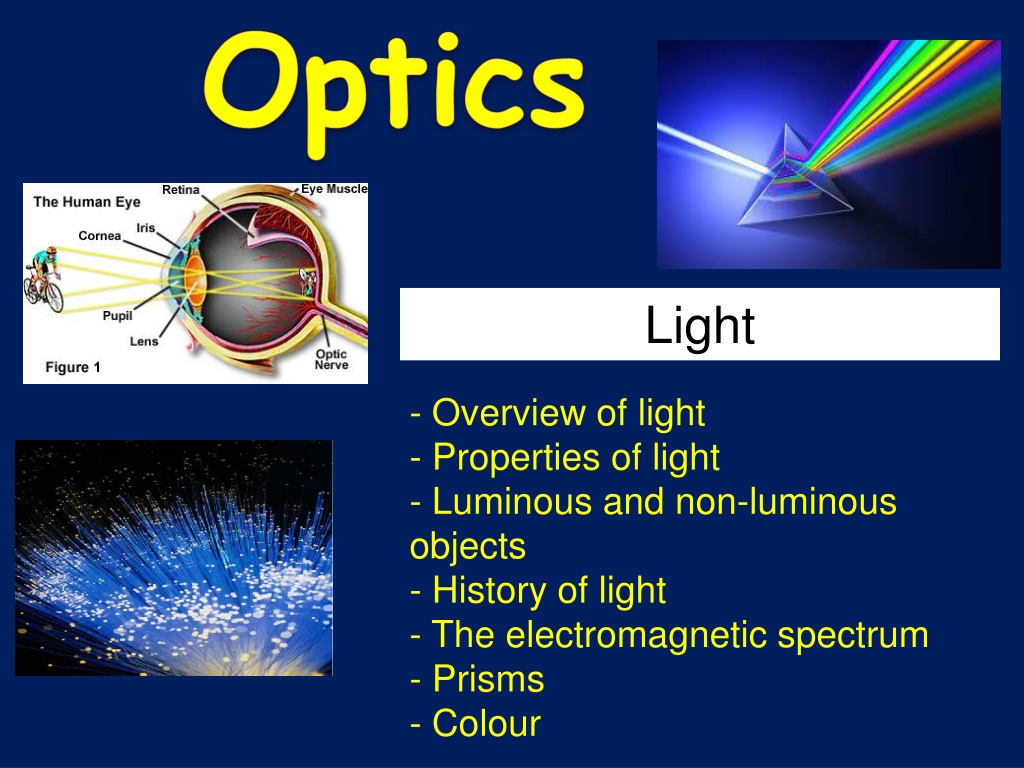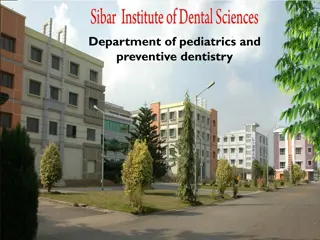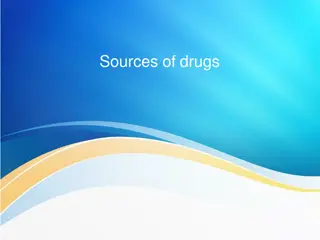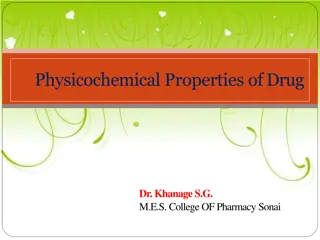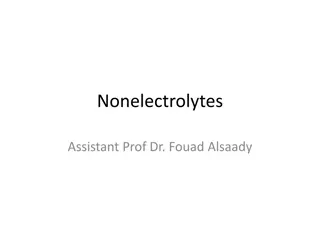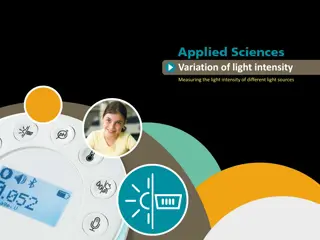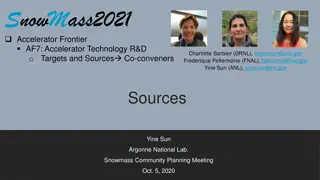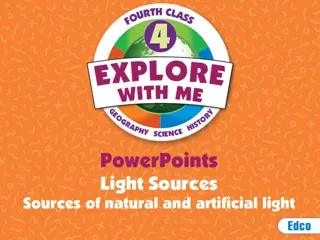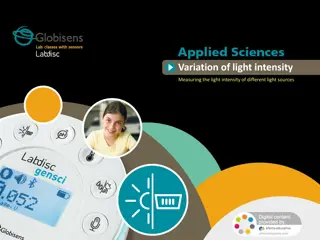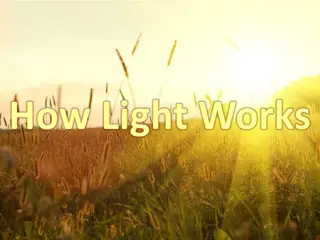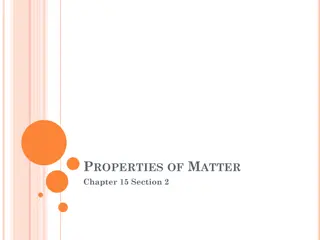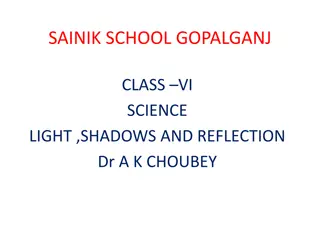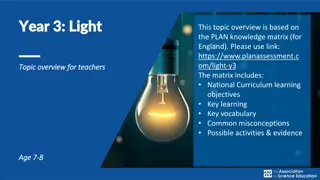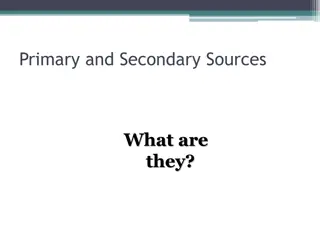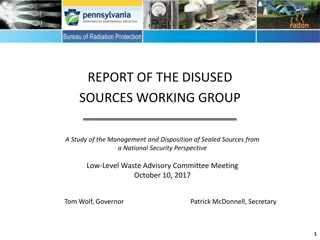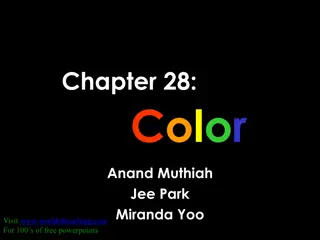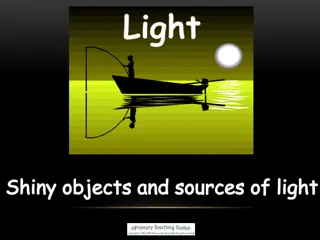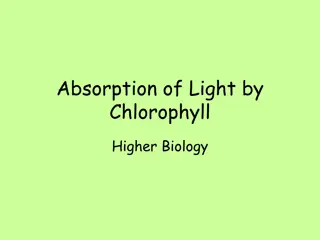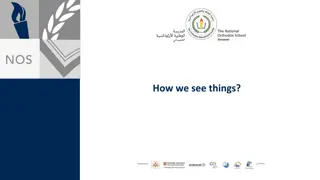Understanding Light: Properties, Sources, and Effects
Explore the fascinating world of light, from its origins in the sun through processes like nuclear fusion, to its incredible speed and unique properties. Learn about luminous and non-luminous objects, the electromagnetic spectrum, prisms, and the colors of light. Delve into the history of light and its importance for life on Earth.
Uploaded on Sep 28, 2024 | 0 Views
Download Presentation

Please find below an Image/Link to download the presentation.
The content on the website is provided AS IS for your information and personal use only. It may not be sold, licensed, or shared on other websites without obtaining consent from the author. Download presentation by click this link. If you encounter any issues during the download, it is possible that the publisher has removed the file from their server.
E N D
Presentation Transcript
Light - Overview of light - Properties of light - Luminous and non-luminous objects - History of light - The electromagnetic spectrum - Prisms - Colour
TeachWithFergy Preview File Please enjoy this preview of your Power Point. - Some slides appear blank because they have been removed. - Other slides may have ........... on them, this represents writing that has been removed. - Words that are bolded and underlined represent blanks in the student version - Please note that the Entire Unit Package can also be purchased at a steep discount from my Store.
Where does light come from? The SUN!! The sun is a star located ___________________________ __________________________________, away from Earth. It provides energy in the form of light through a process called nuclear fusion. Nuclear fusion occurs when two atoms that naturally repelled each other ________________________ ___________________
Light travels VERY FAST 3.0X108m/s = 300,000 kilometres per second. At this speed it can ....................____ ______
The Strangeness of Light The speed of light (c) is constant Nothing moves faster than the speed of light Anything with mass cannot travel at the speed of light .
Light travels _____________________than sound. For example: 1) Thunder and lightning start at .............. 2) When a ................
We see things .............: Homework
Luminous and non-luminous objects A ___________object is one that produces light. A ____________ object is one that reflects light.
video-icon.jpg Fun Science Light Video
Properties of Light summary 1) Light travels ............... 2) Light travels ___________ 3) We see things because................ 4) .................
Modern electromagnetic waves Today we .._____________
Modern View Continued As we _____________
The Surprising Universe Today Scientists use different portions of the electromagnetic spectrum to collect and analyze data about _____________ This provides them with completely different views compared with using visible light only
Essential Knowledge, Skills, and Processes Analyze the . _____________
The colours of the rainbow: Red Orange Yellow Green Blue Indigo Violet
Prisms What happens when you place two prisms next to each other? Simulation Removed
Adding colours White light can be split up to make separate colours. These colours can be added together again. The primary colours of light are ____________________ : Adding blue and red makes magenta (purple) Adding blue and green makes cyan (light blue) Adding red and green makes yellow Adding all three makes white again
Seeing colour The colour an object appears ______________ For example, a red book ___________________ Homework White Only red light is reflected light
............................. Purple light A white hat would reflect ____________________ White light
In different colours of light this uniform would look different: Red Shirt looks red, why? light Shorts look black, why? Shirt looks black, why? Blue light Shorts look blue, why?
Using filters Filters can be used to ___________ out different colours of light: Red Filter Magenta Filter
Colour Blindness The tricky thing about colour blindness is ........................ (40% of ............................ color-blindness-simulator-e
How many animals are there?
........................... ............................
Blue Colour Blindness ........................ In both these cases ........................
